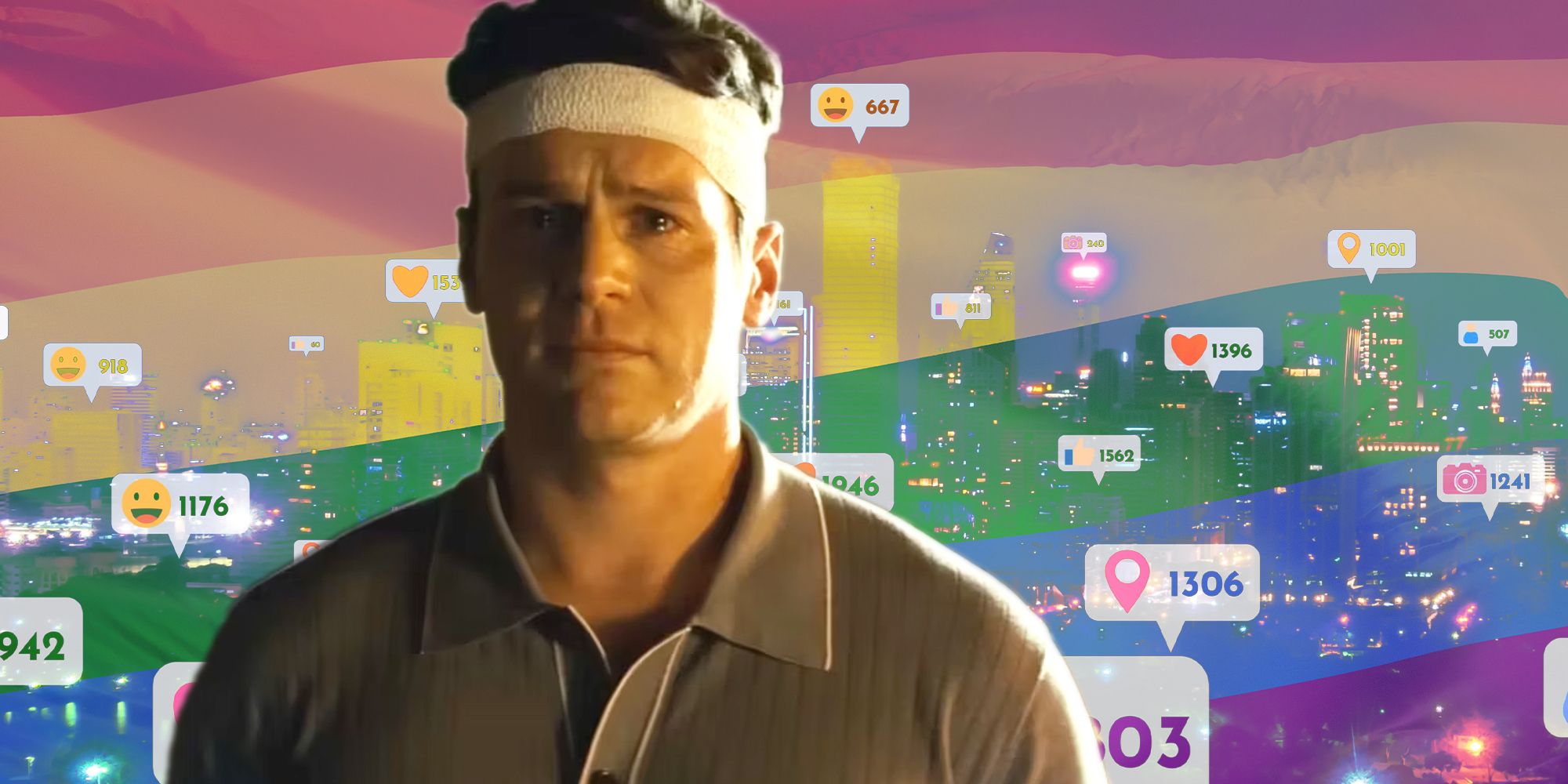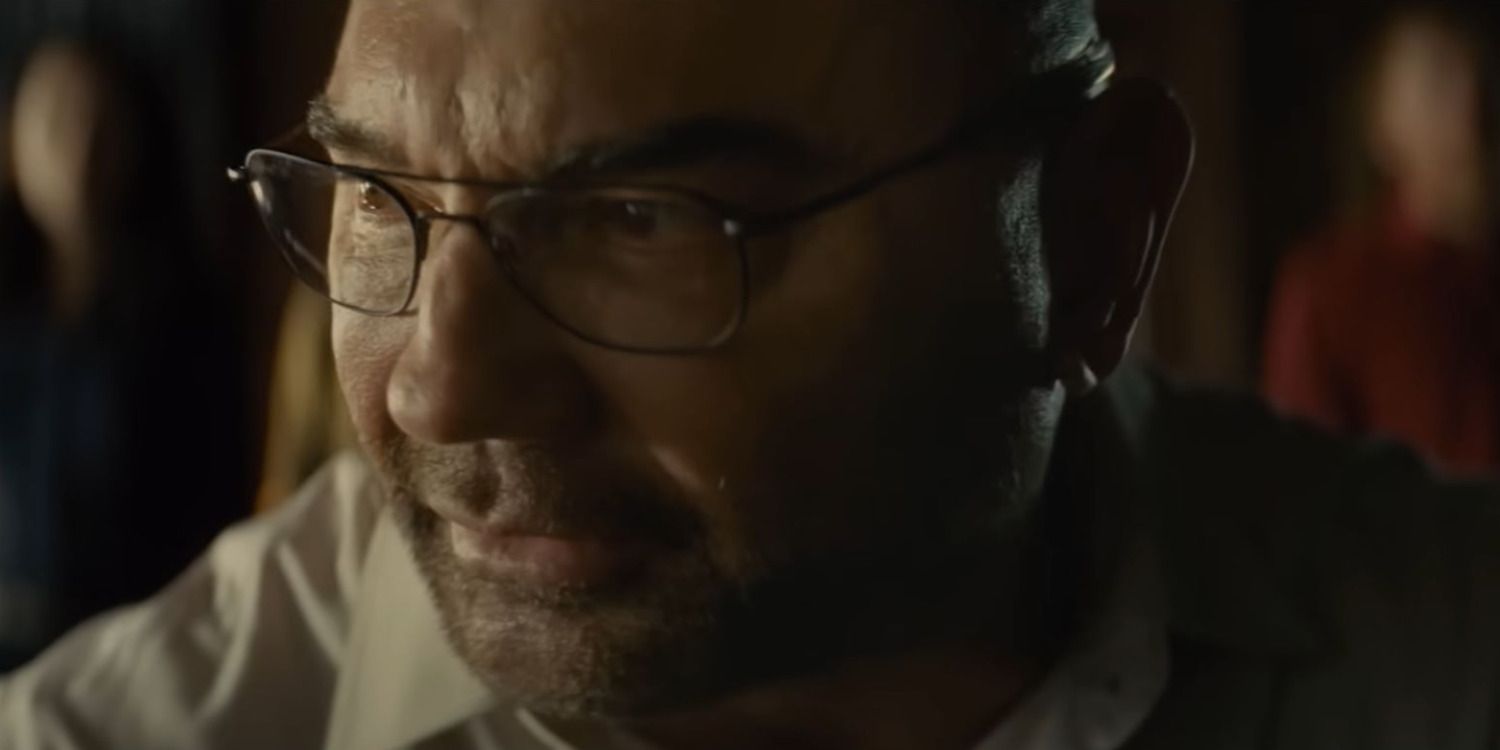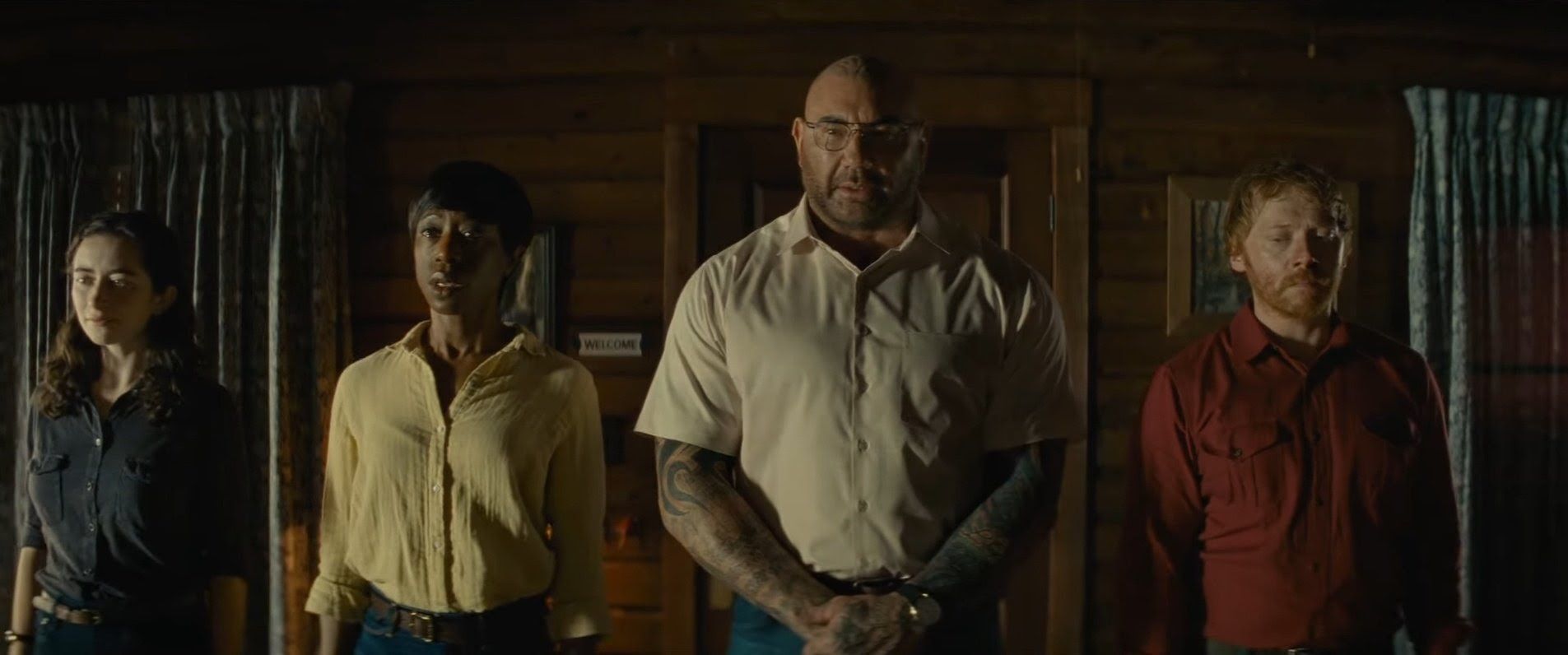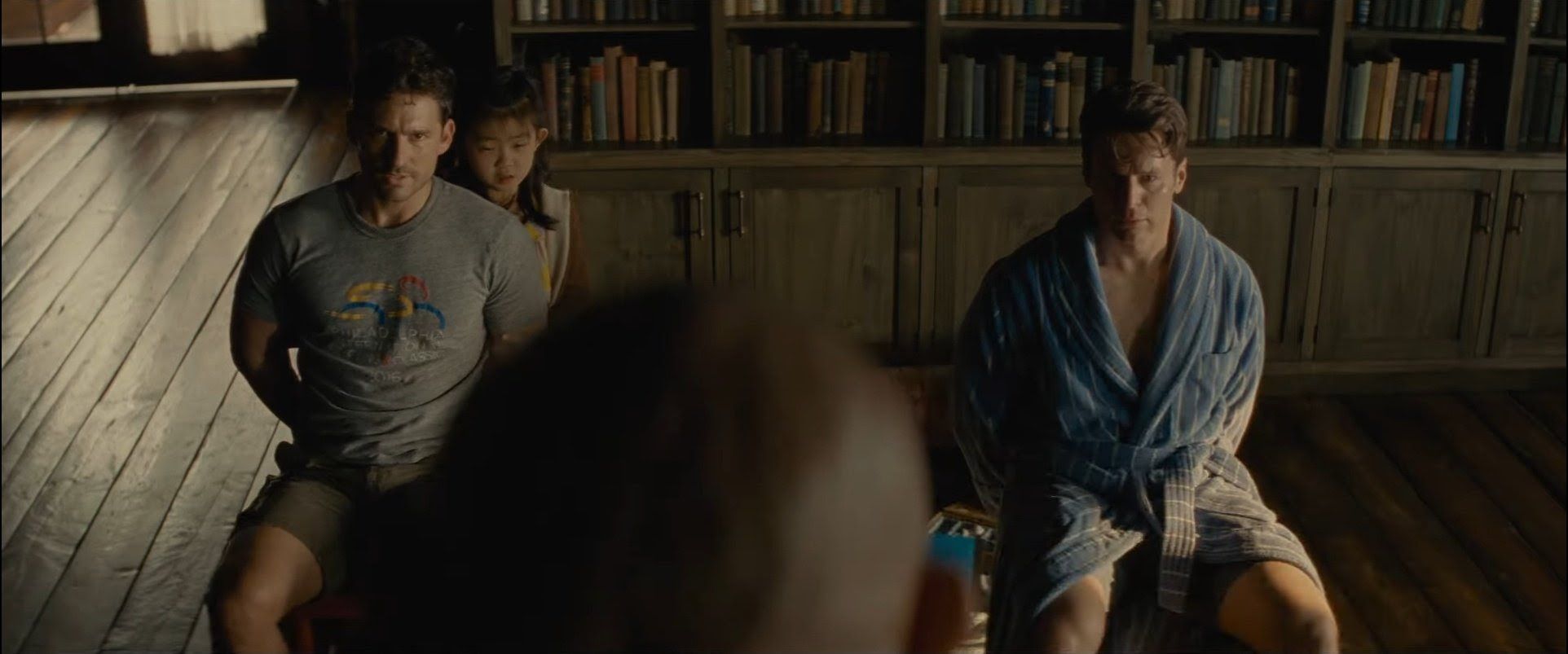I saw Knock at the Cabin last weekend, and it was fine. It's unusual to have such a pedestrian reaction to M. Night Shyamalan's work. People tend to either love them or hate them. His penchant for narrative twists, high concept ideas, and involved camera work make him a divisive filmmaker, and I'm usually on his side. I love Unbreakable, Split, and The Sixth Sense dearly, and I will defend The Village against its detractors. I have nothing particularly against Knock at the Cabin, even if little beyond the aforementioned camera work and Dave Bautista's performance will live long in my memory. But the bizarrely personal and zero-sum way we discuss media these days means I am forced to defend it from the lowest form of understanding.
Spoilers follow for Knock at the Cabin, as do woeful interpretations of modern media.
The biggest twist of Knock at the Cabin is that there is no twist. A gay couple and their adopted daughter book a holiday cabin, and one morning, four strangers with odd and violent weapons break in. There is a minor struggle, but once the couple are tied up, the group of invaders are calm, almost sympathetic. They present the couple with a choice - the couple must choose one of them (or their daughter) to die at the hands of the other. Doing so is the only way to prevent the apocalypse. It's a classic Shyamalan premise (albeit based on Paul Tremblay’s novel The Cabin at the End of the World), and sets up an incredibly claustrophobic movie.
From here, it follows a familiar structure. The four strangers introduce themselves and explain once more why they are here, while the tied up couple refuses to believe them. The couple is asked whether they will "make the sacrifice" and they refuse. One of the strangers then kills themselves violently, in front of the couple. The leader of the strangers then turns on the TV to show natural disasters. For the first two, the couple's doubts are almost unwavered. The first example, a tidal wave hitting the coast of the USA, comes after a tsunami warning hours previously, suggesting the strangers planned the break-in and got lucky. The second is a pre-recorded program discussing a viral outbreak growing in severity - again, the incident could have been planned.
Once they fail to choose the third time, things become harder to deny. Live footage of planes falling from the sky appears on the news. Now the couple seems to believe, but still find the choice impossible. They fail to choose a fourth time, and lightning strikes around the world ignites forest fires ready to burn the Earth to a crisp. Even then, one father wants to continue on. The prophecy foretells that the couple and their daughter will be the only survivors, and that's good enough for him. The other father would rather sacrifice himself so his daughter may have a full life, and in the end, he convinces his husband to kill him. Rain falls to stop the fires. Planes no longer malfunction in flight. The death rate of the disease slows, then stops. Citizens are rescued from the abating waves.
That's basically the movie. I did warn you there would be spoilers. The reason we need to go through the plot so thoroughly is because like most Shyamalan movies, the discussion hinges on the ending, though not in the way you might think. The ending proves these strangers correct. The failure of this couple to choose does lead to disaster, and their final decision to sacrifice one of themselves saves the world. However, many are interpreting this as meaning the alt-right is correct about gay people causing the end of the world, and the only way to stop it being our suicide to cleanse the planet.
It's an incredibly reductive view of media where we think the filmmaker agrees with all character decisions, only ever interprets them on a surface level, and reduces everything down to identity politics. If you do not like a movie because a bad thing happens to a gay person in it, I fear movies are too complex an art form for you. I suggest starting with building blocks. Movies can veer into hateful or exploitative torture porn, putting gay characters through untold misery in a way that feels unpleasant an unnecessary, but none of that is the case here. When one of the gay characters is attacked in a flashback, we zoom out to spare him this indignity. Physically, one of the gay characters is the second strongest in the movie. Mentally, the other gay character might be the smartest. The only homophobic character is the first to die, and it's a pathetic death at that.
The strangers tell them they had no idea the couple chosen was a same-sex couple until they arrived, only that they were chosen because their love for themselves and for their daughter is so pure. It is also implied that this has happened before, throughout history, and that heterosexual couples have also been asked to make the choice. It puts gay couples and straight couples on the same platform. If the roles were reversed, and the home of a straight couple was invaded by four people, one gay and anti-straight, and the gay person dies first, the same complaints would exist. That's because media is bad when bad things happen to people you like and good when good things happen to people you like. And if you try real hard you might get up to four bricks high next.
Knock at the Cabin is fine, and I'm surprised to find myself defending it when there are obvious logical flaws and pacing issues. But the way we digest media is becoming bafflingly driven by our own identities and our projection of them - see also complaints of burying your gays after The Last of Us dedicated a whole episode to a gay couple - has me taking up my shield. I don't care if you like this movie. I just want you to understand it.




